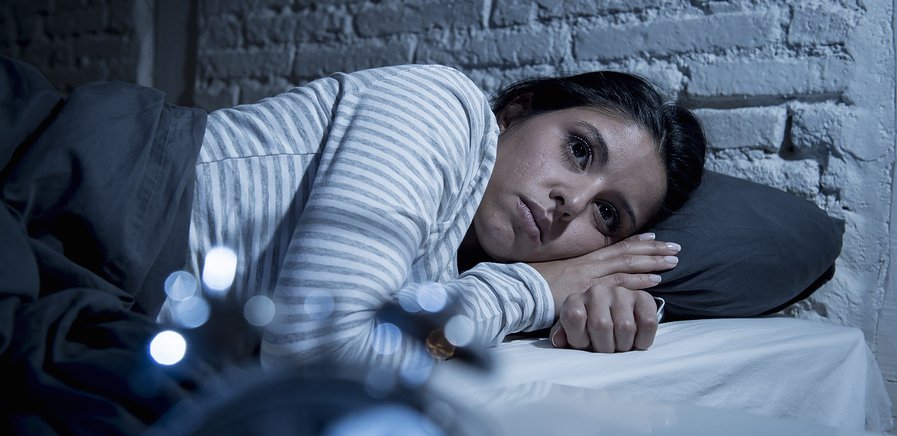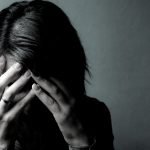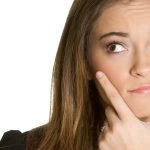If you’ve been following this blog for a while, you know we’ve written many articles about depression and anxiety cures. Exercise, magnets, therapy, antidepressants, diets, herbs, music—all have been explored. But what works best, and what works fastest? Should you just take the pill prescribed by your MD? Or fork over $200 a week for psychotherapy? Should you simply put on your running shoes and do a mile while listening to Bach through your headphones?
The relevance of these questions can’t be underestimated, because so many of us are depressed, anxious, and in need of help. A recent study published in JAMA Internal Medicine reveals that that one out of every six people in the US has taken psychiatric drugs, and the great preponderance of those prescriptions are for antidepressants or anti-anxiety pills.1Carey, Benedict. “One in 6 Americans Say They Have Taken Psychiatric Drugs, Report Says.” 12 December 2016. The New York Times. 24 February 2017. http://www.nytimes.com/2016/12/12/health/one-in-6-american-adults-say-they-have-taken-psychiatric-drugs-report-says.html?partner=rss&emc=rss&_r=0 The study found a significant increase in the use of antidepressants since 2009, when we wrote a blog post revealing that one in 10 people had taken antidepressants, a fact that we found alarming at that time. Now that statistic has risen to one out of every 8.5 individuals, with another one out of every 12 on sister drugs for anxiety.2 Moore, Thomas J. and Mattison, Donald R. “Adult Utilization of Psychiatric Drugs and Differences by Sex, Age, and Race.” February 2017. JAMA Internal Medicine. 23 February 2017. http://jamanetwork.com/journals/jamainternalmedicine/article-abstract/2592697 The majority of such prescriptions (85%) were refilled at least three times in the study year, meaning that these depressive crises and anxious states are not short-lived, one-shot deals.
As extraordinary as these numbers appear, they probably underestimate the actual numbers of people on antidepressant and anti-anxiety drugs, since the data relies on self-reporting from the 37,421 respondents, and you can bet that many were reluctant to reveal that they took such medications. It’s also interesting to note that the one in six figure represents an average for all subgroups, with twice as many women as men taking such drugs, and twice as many whites as other races. Among those over the age of 65, nearly one in every four people is on an antidepressant or anti-anxiety medication.
We can blame the pharmaceutical industry for the off-the-charts use of psychiatric drugs, or we can blame physicians, but the fact is that there’s an audience desperate for relief from paralyzing sadness and crippling anxiety, which is why sales of antidepressants and anti-anxiety medications keep increasing. In truth, anti-anxiety medications are now so strictly regulated that many doctors are loathe to prescribe them, and yet, at least one of your neighbors most likely is popping such a pill even as you read this.
In one of those cosmic coincidences, a friend of mine, a psychotherapist, just telephoned me as I wrote the previous sentence, complaining that she feels depressed and is thinking about getting a prescription for antidepressants. She is a smart woman, well-versed in the holistic realm, aware of alternatives. Her call crystallizes the core issue here.
Of course, we know, and have written about, the fact that exercise works just as well or even better than pharmaceuticals for alleviating depression and anxiety. So why on earth don’t doctors just prescribe exercise instead of prescribing the pills with dangerous side effects? Maybe it’s not just because they’re lazy or indoctrinated, but because they don’t want to encourage noncompliance. The sad truth is that when depression is severe, patients often can’t muster the energy to start exercising, or to take a class, or to even call a friend. One of the symptoms of depression can be a kind of catatonia where doing anything that requires energy feels overwhelming. Depression famously takes to bed and wants to stay there.
It’s the same thing with suggesting that morose or anxious patients give up junk food and eat healthy, mood-supporting food. Depression is famous for seeking short-term comfort, and for many depressed people, the thought of avoiding chocolate, wine, coffee, cupcakes and so on is just too much to bear.
In other words, depression and anxiety crave short-term, no-sweat solutions and pharmaceuticals seem to suit the bill. Patients are willing to deal with side effects and with health risks in hope of finding some fast relief. And while the efficacy of antidepressant pills may be dismal for many patients, some do find they get a significant mood lift from them. Likewise, anti-anxiety medications often work fast, fueling continuing demand for them. Theoretically, prescription drugs might work as a short-term bridge until the patient is stabilized enough to switch to something that actually enhances health (like exercise), instead of continuing on medications that could potentially destroy it. (The problem, of course, is that the switchover doesn’t happen. Rather, the doctor writes out another prescription refill, leaving the patient to continue the same old unhealthy routines.)
What, then, are the options of choice for patients who are battling mood problems and can’t get the oomph mustered to install healthy routines just yet? Should pharmaceuticals be first resort, or last resort?
First, it’s important to recognize that pharmaceuticals aren’t the only easy-pop solution. There are herbals and homeopathic formulas that do work for many, with far fewer risks attached. Jon Barron has written often about remedies you can buy at the health food store—including valerian, black cohosh, kava kava, lobella, 5-htp, passionflower, St. John’s wort, SAM-e, L-Theanine, various essential oils and other substances— that may make all the difference. Don’t worry—you don’t have to buy all of these things. If you cruise the relevant aisle at your local shop, you’ll find all sorts of formulas containing various combinations of mood-enhancing substances designed to calm and uplift. The best bet is to try out a few until you find one that works. If it turns out that nothing, absolutely nothing, does the trick, only then does it make sense to consider trying a pharmaceutical (remember, plenty of people don’t respond to pharmaceuticals, either), and in that case, for the shortest possible time.
That’s exactly what I suggested to my psychotherapist friend. That, and maybe psychotherapy. Clinical studies do show that counseling can be quite effective, but it takes time for it to work, and it takes energy to make it to the clinician’s office every week, and people like my friend want something that will help them through this very weekend.
References
| ↑1 | Carey, Benedict. “One in 6 Americans Say They Have Taken Psychiatric Drugs, Report Says.” 12 December 2016. The New York Times. 24 February 2017. http://www.nytimes.com/2016/12/12/health/one-in-6-american-adults-say-they-have-taken-psychiatric-drugs-report-says.html?partner=rss&emc=rss&_r=0 |
|---|---|
| ↑2 | Moore, Thomas J. and Mattison, Donald R. “Adult Utilization of Psychiatric Drugs and Differences by Sex, Age, and Race.” February 2017. JAMA Internal Medicine. 23 February 2017. http://jamanetwork.com/journals/jamainternalmedicine/article-abstract/2592697 |












I was suffering severe
I was suffering severe anxiety, along with panic attacks and insomnia. Prescriptions did nothing to help; and actually caused additional problems due to severe side effects and even an allergic reaction. I had to stop all prescriptions.
Unrelated to my psychological issues, I started taking Vitamin D2 because a blood test showed I was very low and Turmeric because I read it might help with some joint pain I was having — to my surprise, after only a few weeks, I was feeling better physically AND my anxiety started to subside. I have not had a single panic attack in over a year, I sleep well now and I feel better overall.
This made me wonder if psychological problems had less to do with serotonin and more to do with a lack of vitamins and minerals in the body.
Not having read all of your
Not having read all of your previous posts on depression, I am simply hoping you already asked the underlying question: why? Why is everyone (almost) suffering from depression? Acknowledging that you have to get out of bed to exercise, visit the therapist, etc., why is it that so many are ‘taking to bed’ in the first place? And what do we as individuals need to do about that? Of course the underlying issues are numerous and endlessly different for each individual but in my experience they typically end up to a cultural indoctrination that applauds individuality, competitiveness and self- centered-ness. Once we discover (and accept) this as the root cause of seeing no light at the end of our tunnel, we can start to find our way out.
Having worked much of my life
Having worked much of my life in the natural health supplement field I have come to the conclusion that hardly any of them work and are just money making schemes. Not only my own experience but from working with customers for 19 years. My 2 cents. Exercise however does help.
I’m taking 60 mgof Cymbalta
I’m taking 60 mgof Cymbalta daily, that’s the only perscription meds. I’m on now!
I just got myself off of Oxycodone 15mgs. X6 daily.
So now I’m staying strong to stay off the Oxys! I have an addictive personality! My problem now is that I have to make myself get out of bed, force myself just to get up! I don’t have a support group, To be honest I like staying to myself. I’m 59,60 in November, I’ve had knee(left)replacement, hip (right) replacement & I broke my hand off my wrist in 2004, had 3 surgeries on that. Needless to say I have osteoarthritis! What can I do to help myself? Exercise is limited, walking will be my best bet, but I live in N.Y., we’re just thawing out now! I want to move to Nevada due to my arthritis and I need sun to survive, I love the sun, it’s like my God, really do feel energetic after some sun rays! I’d appreciate any suggestions you can give me, I’m confused, my mind never shuts up, always thinking! I love gardening but too soon now! Thanks for listening, I’ll try anything! Thanks again Pam
Hi Pam,
Hi Pam,
Thanks for sharing. We have a lot of articles on this site about depression and natural rememdies that could help. Just do a search at the top of this website and you will see all sorts of articles that talk about more than just exercise. Hope that helps!
my depression is forty five
my depression is forty five years old.currently am trying tryptophan and if not helpful will try sam-e.
Hi Brian,
Hi Brian,
Be sure to read the bottom of this article where Jon lists other supplements you can find at most health food stores: https://jonbarron.org/depression/stress-depression
Go to Amazon and check out
Go to Amazon and check out Kelly Brogan’s book. She is weaning her patients OFF of prescription drugs as fast as possible.
Hyla Cass is probably in the same boat. She is very aware of how many of her patients have vitamin and/or mineral deficiencies that the referring physician did not catch.
YEA!!!
After three years in therapy,
After three years in therapy, feeling like nothing was really changing, I began taking vitamin B3 (inositol hexaniacinate, non-flushing niacin) for blood lipids on my naturopathic physician’s advice. Interestingly it ended up resolving my blues & anxiety — a fantastic side effect which is apparently due to niacin slowing down the production of cortisol normally released in response to stress.
I also have to say that cutting starches and increasing fats has also helped my mood immensely. My brain feels much clearer, I sleep much better, and wake feeling rested. This in addition to less edema, fewer less aches & pains, and no more cravings.
While I understand the impulse to reach for sugar during episodes of depression I can only say looking back that sugar is so damaging, so inflammation-producing, and so craving-stimulating, that whatever effort applied to getting off sugar and increasing good dietary fats (like coconut oil) would do a world of good.
The depressing truth about
The depressing truth about antidepressants is that reviews have shown that they are not any more successful than a fake treatment in treating gentle to direct discouragement. People think that if will help in relieving the problems that are suffering from. But they don’t think that it can also harm them. Most of the people who have become drug addicts, they usually rely on antidepressants pills. But there are some people I have seen who haven’t used any antidepressants, but have overcome their problems of Depression, Anxiety, Stress. My friend was suffering from these problems 6 months ago. She tried Medication, Counselling, Consulted different doctors also. Nothing helped her out. Then someone told her family to talk to Martine. She consulted there and she was feeling much, much better after the Consultation. So there are chances that the Problems can be solved without Consuming pills that will give you relief for very small time.